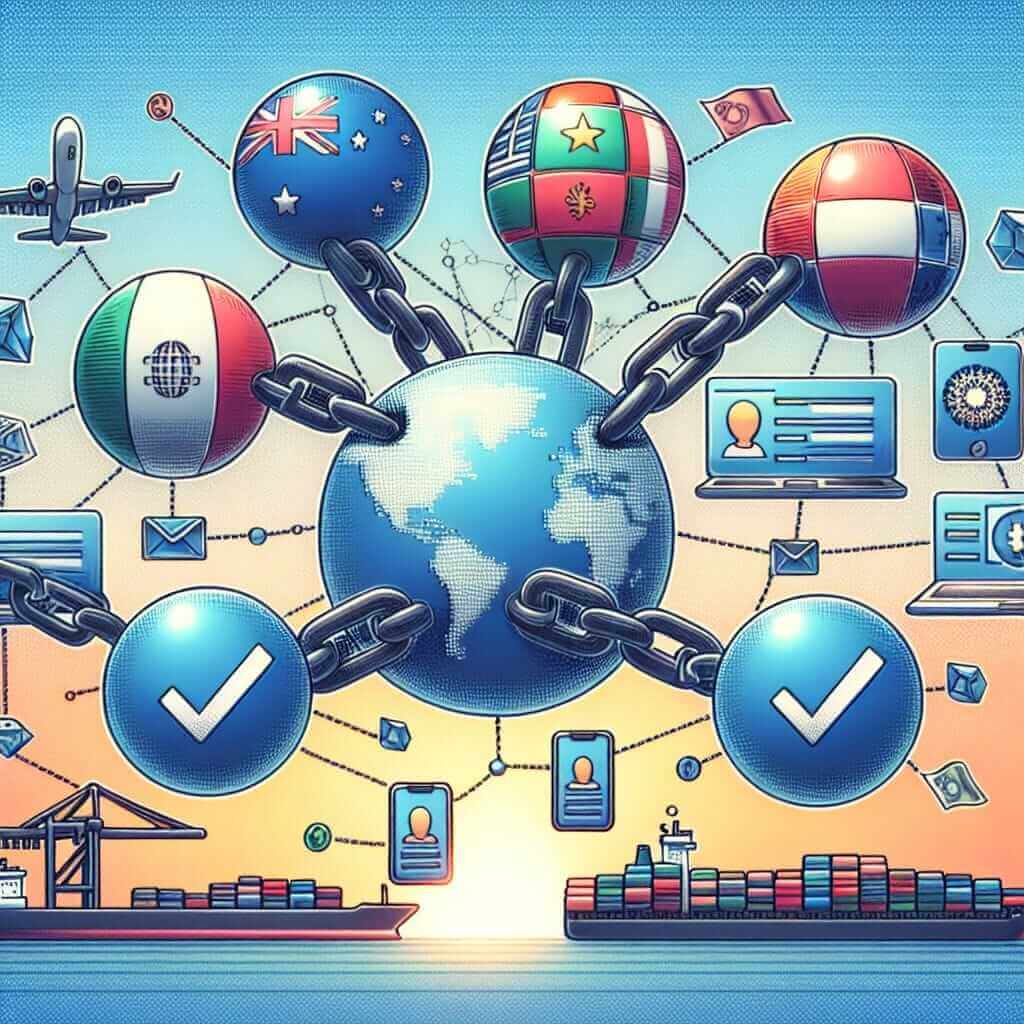The Reading section of the IELTS exam often features passages on contemporary topics that are prevalent in the media and scholarly discourse. One such topic that has been gaining popularity is blockchain technology and its impact on international finance. Given the rise in interest surrounding this subject, it is plausible to expect similar topics to appear in future IELTS exams.
In this article, we will delve into how blockchain technology is impacting international finance by providing a model reading passage, relevant questions, detailed answers, common pitfalls, vocabulary, and grammatical structures to look out for.
Model Reading Passage and Questions
Reading Passage: Medium Text
Blockchain Technology’s Impact on International Finance
Blockchain technology, the backbone of cryptocurrency, is reshaping the landscape of international finance. By offering a decentralized ledger that records transactions across multiple computers, blockchain ensures that these transactions are secure, transparent, and immutable. The most significant changes are visible in areas such as cross-border payments, trade finance, and identity verification.
 Blockchain Technology in International Finance
Blockchain Technology in International Finance
Cross-Border Payments
Traditionally, cross-border payments have been slow and costly, often requiring several intermediary banks and multiple days to complete. Blockchain technology, especially through the use of cryptocurrencies like Bitcoin and Ripple, enables faster and cheaper transactions by eliminating the need for intermediaries. This efficiency helps reduce transaction fees and transfer times, making it an attractive option for international remittances.
Trade Finance
Trade finance is another sector experiencing transformation due to blockchain. The traditional process involves extensive paperwork, including letters of credit and bills of lading, which often leads to delays and increased costs. With blockchain, smart contracts can be used to automate these processes, ensuring that all parties adhere to the agreed terms without the need for manual intervention. This not only speeds up the transaction process but also reduces the risk of fraud.
Identity Verification
Identity verification is crucial for compliance with international regulations like anti-money laundering (AML) and know-your-customer (KYC) requirements. Blockchain can provide a secure and transparent way to verify identities, reducing the need for repetitive checks and enhancing the accuracy of the verification process. This innovation can significantly lower compliance costs for financial institutions.
In conclusion, blockchain technology is ushering in a new era for international finance by improving efficiency, reducing costs, and minimizing fraud. As the technology continues to evolve, its applications are likely to expand, further revolutionizing the financial landscape.
Questions:
1. Multiple Choice
-
In the context of cross-border payments, blockchain technology primarily helps by:
- a. Increasing the number of intermediary banks.
- b. Reducing transaction fees and transfer times.
- c. Creating more paperwork.
- d. Decreasing transparency.
-
In trade finance, blockchain technology can utilize:
- a. Smart contracts to automate processes.
- b. Letters of credit to increase manual intervention.
- c. Bills of lading to delay transactions.
- d. Traditional methods to reduce costs.
2. True/False/Not Given
- Blockchain technology eliminates the need for identity verification in compliance with AML and KYC requirements.
- The use of blockchain in trade finance increases the risk of fraud.
3. Sentence Completion
- Blockchain improves cross-border payments by __.
- Smart contracts in trade finance help to __ without manual intervention.
Answer Keys
1. Multiple Choice
- b. Reducing transaction fees and transfer times.
- a. Smart contracts to automate processes.
2. True/False/Not Given
- False
- False
3. Sentence Completion
- eliminating the need for intermediaries, thereby reducing transaction fees and transfer times.
- automate processes, ensuring adherence to agreed terms without manual intervention.
Common Pitfalls
- Misinterpreting the Passage: Many candidates misinterpret the passage due to a failure to understand key terms. It’s crucial to practice reading passages on similar topics to build familiarity.
- Neglecting Context Clues: Always rely on context clues provided within the passage to decipher meanings and implications.
- Overlooking Details: Paying attention to specific details mentioned in the passage is vital, especially for True/False/Not Given questions.
Vocabulary
- Decentralized (adj): /ˌdiː.sɛn.trəˈlaɪzd/ – Distributed from a central control to several local points.
- Immutable (adj): /ɪˈmjuː.tə.bəl/ – Unchangeable over time.
- Ledger (n): /ˈlɛdʒ.ər/ – A book or collection of financial accounts.
- Intermediary (n): /ˌɪn.təˈmiː.di.ər.i/ – A person or organization that acts as a link between parties.
- Smart Contract (n): /ˈsmɑːrt ˌkɑːn.trækt/ – A self-executing contract with the terms directly written into lines of code.
Grammar
- Relative Clauses: Used to provide additional information about a noun. For example, “blockchain technology, which ensures transactions are secure, is transforming finance.”
- Present Simple and Continuous: Used to discuss general truths and ongoing actions. For example, “Blockchain technology is reshaping the landscape of international finance.”
Tips for High Reading Scores
- Familiarize with Current Topics: Stay updated with contemporary topics such as blockchain technology to improve comprehension skills.
- Practice Variety: Regularly practice different types of questions to become adept at identifying the correct information quickly.
- Efficient Skimming and Scanning: Develop the skills to skim the passage for general understanding and scan for specific information.
By incorporating these strategies and thoroughly understanding impactful topics like blockchain technology in international finance, you’ll be well-prepared to excel in the IELTS Reading section.


